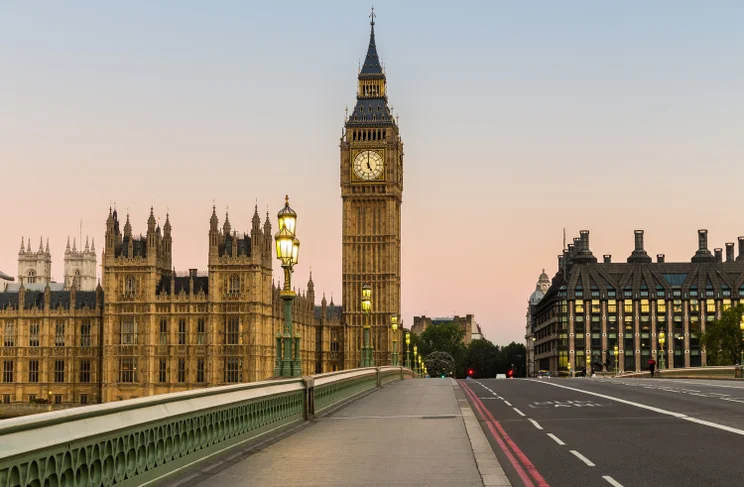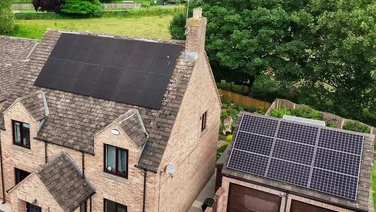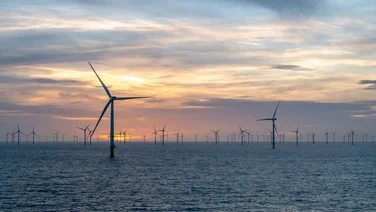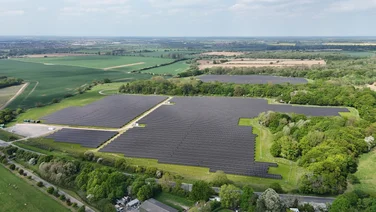We receive a small fee from trusted installers when you request a quote through our site. This helps us keep our content independent, well-researched and up to date – Learn more
- Labour warns that Reform UK’s war on clean energy could put 1 million jobs at risk
- The net zero sector currently supports around 951,000 jobs nationwide
- Reform UK’s deputy leader, Richard Tice, has warned investors against green energy

Reform UK has been slammed as “unpatriotic” by leaders in the solar energy industry after one of its MPs said the party would cancel clean energy investment contracts if it became the government.
Responding to Richard Tice’s message urging investors to steer clear of the government’s latest round of green energy contracts, Chris Hewett, chief executive, Solar Energy UK, said Reform UK threatened “thousands of jobs” and would keep energy bills “sky high”.
Hewett also said the move would undermine national security by maintaining dependence on “imported, expensive fossil fuels”; he predicted that the move would be “ignored by any serious investor.”
Tice’s message came in a letter to the bosses of several major energy companies saying any involvement in future investment rounds, known as Allocation Round 7 (AR7), would carry “significant political, financial and regulatory risks” for their shareholders with a Reform UK government.
For more information on what governments grants there are for solar power, visit our dedicated page
AR-7 is part of the government’s Contracts for Difference (CfD), an auction designed to attract investment for clean energy projects. The next auction, due to begin in August 2025, is believed to be critical for the government’s Clean Power Action Plan.
Tice’s words have sparked intense backlash, not only from Solar Energy UK, but from other parties as well. Labour warned that Reform UK had declared “war on clean energy” could put nearly 1 million jobs at risk.

Get free solar panel quotes
Answer a few quick questions, and our trusted installers will send you bespoke solar panel quotes – for free.
MP Michael Shanks, from the Department of Energy Security and Net Zero called Reform’s opposition to net zero a “war on jobs.” He said the letter was an “energy surrender plan that would leave bills high for families and businesses, keeping the UK stuck on the rollercoaster of fossil fuel markets”.
“This reckless approach is a direct threat to British jobs, British industry, and Britain’s climate commitments,” Shanks said.
The Confederation of British Industry (CBI) estimates that the net-zero sector currently supports around 951,000 jobs nationwide.
Revoking net zero pledges
In a sign of the damage a Reform UK government might do to clean energy, the party’s councillors in County Durham have revoked the council’s net zero pledge, despite opposition from campaigners, members of the public and cross-party councillors.
Liberal Democrat Mark Wilkes, a councilor in Durham, described the move as “cynical and insulting,” explaining that the council had saved £13m in the past year as a result of climate-saving efficiency measures.
The prior environment pledge aimed to achieve net zero emissions by 2045. They moved to scrap this 2019 proposal with an alternative social care pledge voted through in its stead. According to the Local Democracy Reporting Service, 62 Reform councillors voted to approve the motion and seven from other parties voted against.
Instead the party said it would instead promise to tackle a crisis to children’s social care, including Special Educational Needs and Disabilities (SEND).
However, Jonathan Elmer, Green Party councillor for Brandon, criticised Reform UK, saying if it really cared about children’s social care it would have brought forward a motion without referencing climate change.
Wilkes agreed and said social care issues had “nothing whatsoever to do with climate change.”
“It is our young people who are going to be most impacted by climate change,” Wilkes commented. “The savings we have been making off the back of our action on the climate, including energy efficiency measures, is actually helping us to protect frontline social care services.”
In 2024, Durham County Council received a national award for its carbon reduction and was praised for using green technologies such as wind turbines, solar panels and battery storage, in a community effort to reach net zero emissions.









